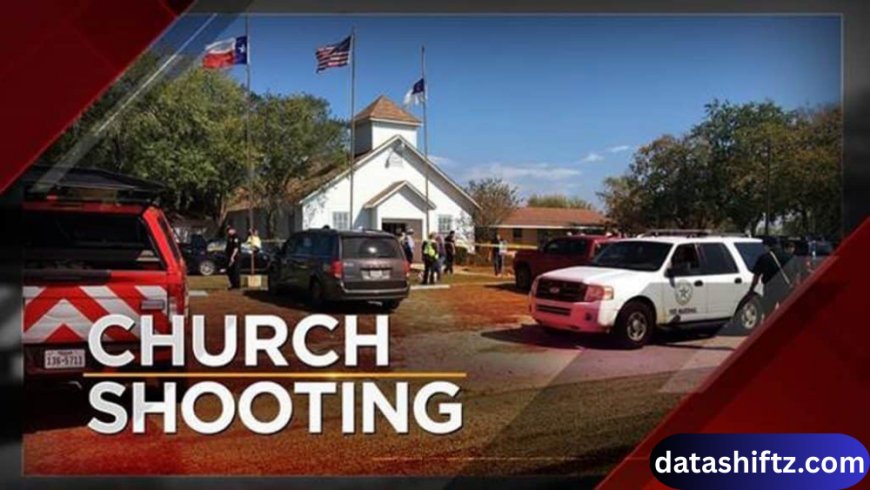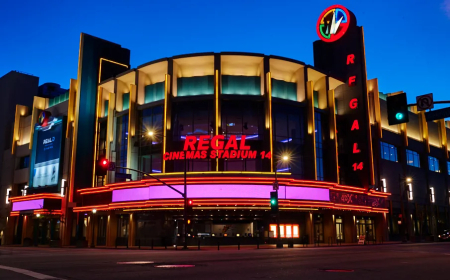Michigan Church Shooting: Tragedy, Response, and the Path Toward Healing

Introduction
Tragedies often strike where we least expect them, and communities are left to grapple with grief, fear, and unanswered questions. The Michigan church shooting is one such heartbreaking incident that has shaken the state and the nation. A place of worship—meant to symbolize peace, faith, and unity—became the scene of violence, leaving residents devastated and searching for healing.
This blog post explores the details of the Michigan church shooting, the community response, broader societal implications, and steps being taken to prevent similar tragedies in the future.
Understanding the Michigan Church Shooting
The Michigan church shooting shocked not only the local community but also the entire nation. Details are still emerging, but here is what is generally known:
-
The shooting took place inside a local church during a service.
-
Multiple people were injured, and some lives were tragically lost.
-
Emergency responders and law enforcement acted quickly to secure the area.
-
The incident sparked conversations about gun safety, mental health, and community protection.
Key Facts About the Michigan Church Shooting
| Aspect | Information (Based on Reports) |
|---|---|
| Location | Michigan, United States |
| Type of Incident | Mass shooting inside a church |
| Date & Time | During a Sunday service (Exact TBD) |
| Casualties | Several injured, some fatalities |
| Law Enforcement Response | Rapid response; suspect taken into custody/neutralized |
| Community Impact | Grief, trauma, calls for stronger safety measures |
The Community’s Response
In times of tragedy, communities often come together with extraordinary strength. The Michigan church shooting is no exception.
-
Vigils and Prayer Gatherings – Residents organized candlelight vigils to honor victims and provide comfort to grieving families.
-
Fundraisers and Donations – Local organizations and national charities set up funds to support victims’ families and medical expenses.
-
Mental Health Support – Counseling services were offered to survivors and community members struggling with trauma.
-
Solidarity Across Faiths – Religious leaders from various backgrounds condemned the violence and stood together for peace.
Common Reactions After Such Incidents
-
Shock and Disbelief – Communities struggle to understand how such violence could occur.
-
Fear and Anxiety – Many worshippers feel unsafe in sacred spaces.
-
Calls for Justice – Victims’ families and the public demand accountability.
-
Renewed Gun Control Debates – Lawmakers revisit policies on firearms.
-
Mental Health Awareness – Emphasis on identifying at-risk individuals early.
-
Support Networks – Families lean on neighbors, friends, and faith-based groups.
-
Media Coverage – National and local outlets highlight the tragedy.
-
Government Condolences – Leaders express grief and solidarity.
-
Community Healing Efforts – Nonprofits and churches collaborate to rebuild trust.
-
Long-Term Memorials – Monuments and anniversaries honor victims.
Broader Societal Implications
The Michigan church shooting raises pressing questions about safety, policy, and the role of community in preventing violence.
Gun Safety
The debate around gun control laws intensifies after every mass shooting. Many argue for stricter background checks, limits on assault-style weapons, and safe storage laws. Others emphasize the importance of responsible ownership while respecting constitutional rights.
Mental Health
Experts point out the critical role of mental health services in preventing violence. Early intervention, accessible therapy, and community outreach programs can help at-risk individuals before crises escalate.
Places of Worship and Safety
Churches, mosques, synagogues, and temples are meant to be sanctuaries. The attack raises urgent concerns about:
-
Security measures in religious institutions.
-
Balancing openness and safety in community spaces.
-
Training staff and volunteers in emergency preparedness.
Historical Context of Church Shootings in the U.S.
Unfortunately, the Michigan incident is not isolated. Over the past two decades, the U.S. has witnessed several church shootings, including:
-
Charleston, South Carolina (2015) – Emanuel AME Church attack.
-
Sutherland Springs, Texas (2017) – First Baptist Church shooting.
-
Pittsburgh, Pennsylvania (2018) – Tree of Life Synagogue massacre.
Each tragedy highlights the need for proactive safety measures and cultural change.
Healing and Moving Forward
Healing from such a devastating event requires time, resilience, and collective action. Communities often turn to faith, therapy, and solidarity to recover.
-
Memorial Services keep the memory of victims alive.
-
Support Groups provide safe spaces for survivors.
-
Policy Advocacy channels grief into meaningful reforms.
-
Educational Campaigns promote awareness about safety and mental health.
The path forward is not easy, but Michigan’s response demonstrates the power of unity, compassion, and resilience.
Conclusion
The Michigan church shooting is a sobering reminder of the fragility of life and the urgent need to address violence in our society. While the pain is deep and the loss is immeasurable, the tragedy also reveals the strength of communities coming together in the face of darkness.
By honoring the victims, supporting survivors, and working toward meaningful reforms in gun safety, mental health, and public security, we can hope to prevent future tragedies. In the end, the message that emerges is clear: faith, love, and unity are stronger than hate and violence.





























